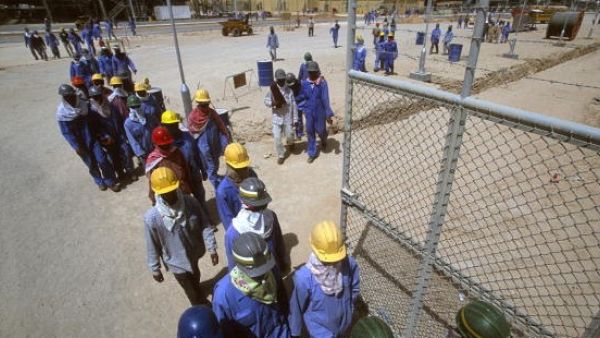Unlike many countries around the world, Saudi Arabia had always been the most exposed to foreign nationals. Since the birth of Islam in Arabia until the founding of the modern day Saudi Arabia in 1938, our land had received pilgrims from many parts of the world. Many of them stayed behind and with time became Saudi citizens.
After the discovery of oil and in later years more expatriates started to arrive in the Kingdom. They came from all corners of the world. Currently expatriates comprise one-third of the total population of the country.
We have around 9 million non-Saudis working and living in the Kingdom. All Saudis are very aware of the contribution of the expatriates to the development of the Kingdom. They play a crucial role in the uplift of the country. We see them in schools, hospitals, universities, private companies and government sectors. Many of them consider Saudi Arabia as their home and many of them had been here for tens of years.
Saudi Arabia is a very rich country with one of the strongest economy in the region. There are countries bordering Saudi Arabia that are plagued with political instability, absence of a powerful central government, high population and most important, poverty. Saudi Arabia is a huge country with thousands of miles of borders including two long coastal areas, the Red Sea and the Arabian Gulf.
Due to these reasons, the number of illegals grew over time. Some of them overstayed their Haj or Umrah visas and some smuggled themselves into the Kingdom from the southern borders with Yemen. The Horn of Africa is very close to the Saudi coast. A large number of people from that region also illegally entered the Kingdom in search of greener pastures. There are certain areas in Jeddah and Riyadh where these people are concentrated; Riyadh’s Manfouha district is an example. Since they are illegal, they had a tendency to stay together and due to which some areas in various Saudi cities became their strongholds. If one closely monitors media reports, it would become clear that these people had become a security threat.
Few months ago, Saudi Arabia announced its plan to check the growing population of illegals in the country. It is known to all that ample time was given to the expats to get their status corrected. At the end of the deadline, the Saudi authorities began their drive to net illegals and deport them to their countries of origin. In the process, the Saudi leadership tasked all relevant departments to provide the illegals with food, shelter and health care.
However, people belonging to one nationality, who form a major chunk of the illegal population in the Kingdom, did not cooperate in the process. Yes, I am talking about Ethiopians. Instead, they began blocking traffic and attacking passers-by in Riyadh’s district Manfouha. When the police intervened, they clashed with them. Some Ethiopians were injured and were taken to hospitals for treatment and were provided with food and shelter.
Riyadh Governor Prince Khalid bin Bander also inspected the facility where they are being kept. And the Ethiopian ambassador was also briefed about the procedure. We Saudis have nothing against the Ethiopians or any expatriates but no expatriate has the right to disturb the peace. These days, we hear concocted stories regarding the ongoing raids, which I believe is a wrong practice.
Saudi Arabia with its economic boom will continue to need expatriates. They are welcome to the Kingdom and work and become a part of the society. Having nine million expatriates in the country will eventually result in some cases of abuse or misunderstandings but there are hundreds of thousands of expatriates who came and left and were part of the development of this country and many of them were able to help their families, educate their children and build homes for their families with the money they made during their stay. Saudis and expatriates can and should work together.
This will make life of the expatriates productive and enjoyable. As for disturbing peace, this will only hurt the expatriates not the Saudis.
By Abdulateed al-Mulhim








